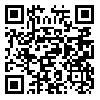Volume 23, Issue 81 (spring 2018)
__Judicial Law Views __2012__, 23(__59__): __224191 |
Back to browse issues page
Download citation:
BibTeX | RIS | EndNote | Medlars | ProCite | Reference Manager | RefWorks
Send citation to:



BibTeX | RIS | EndNote | Medlars | ProCite | Reference Manager | RefWorks
Send citation to:
mohaghegh damad M, keikahy farzaneh M A. Review of the Custom Application approach in the interpretation In Judicial Law based on Imamiyah jurisprudence. دیدگاههای حقوقی 2018; 23 (81) :167-191
URL: http://jlviews2.ujsas.ac.ir/article-1-1008-en.html
URL: http://jlviews2.ujsas.ac.ir/article-1-1008-en.html
1- Shahid Beheshti University , mdamad@me.com
2- Allametabatba`i University
2- Allametabatba`i University
Abstract: (3685 Views)
Abstract:
The custom Both orally and practically is the usual habit and behavior of humans. Cstom in any legal school of thought can play a significant role in three area: creating legal rules interpretation of legal rules and enforcement of legal rules (particularly, based on the legal positivism foundations) But the main question is that the reference to custom in order to interpretation should be done By what principles and strategies to ensure justice the community. It seems that it is inevitable for the judge as an interpreter of the law to apply the legal rules to facts of the case. through the recognition of temporal or local, oral or practical and general or special customs. In the process of interpretation of a legal rule, an important role should be given to the recognition of the competent athority who laying down the rule and also the subjects of law or law followers. In many cases, such a custom is laying down the rule and intention of the legal rule is the customary meaning of the text ( both in Determining the legal rule and the facts of the case). As a result, determining the scope of the costomary truth along with the legal truth is a base that may athorize the judge referring to the custom as an obligatory necessity. Therefore, in the process of interpretation, one can assume the existence of a customary truth, legal truth or religious truth for a word, and what can guide the judge will be the determination of the scope of each one of these truthes i as an athoritative judgement which settles the dispute.
The custom Both orally and practically is the usual habit and behavior of humans. Cstom in any legal school of thought can play a significant role in three area: creating legal rules interpretation of legal rules and enforcement of legal rules (particularly, based on the legal positivism foundations) But the main question is that the reference to custom in order to interpretation should be done By what principles and strategies to ensure justice the community. It seems that it is inevitable for the judge as an interpreter of the law to apply the legal rules to facts of the case. through the recognition of temporal or local, oral or practical and general or special customs. In the process of interpretation of a legal rule, an important role should be given to the recognition of the competent athority who laying down the rule and also the subjects of law or law followers. In many cases, such a custom is laying down the rule and intention of the legal rule is the customary meaning of the text ( both in Determining the legal rule and the facts of the case). As a result, determining the scope of the costomary truth along with the legal truth is a base that may athorize the judge referring to the custom as an obligatory necessity. Therefore, in the process of interpretation, one can assume the existence of a customary truth, legal truth or religious truth for a word, and what can guide the judge will be the determination of the scope of each one of these truthes i as an athoritative judgement which settles the dispute.
Type of Study: Applicable Research |
Subject:
Pivate Law
Received: 2017/05/11 | Revised: 2019/01/02 | Accepted: 2018/06/10 | Published: 2018/10/23 | ePublished: 2018/10/23
Received: 2017/05/11 | Revised: 2019/01/02 | Accepted: 2018/06/10 | Published: 2018/10/23 | ePublished: 2018/10/23
Send email to the article author
| Rights and permissions | |
 |
This work is licensed under a Creative Commons Attribution-NonCommercial 4.0 International License. |

